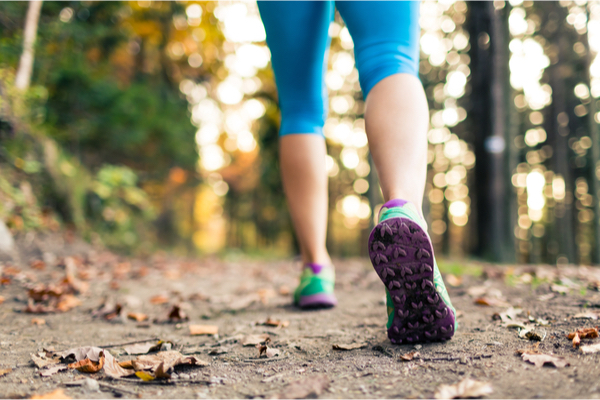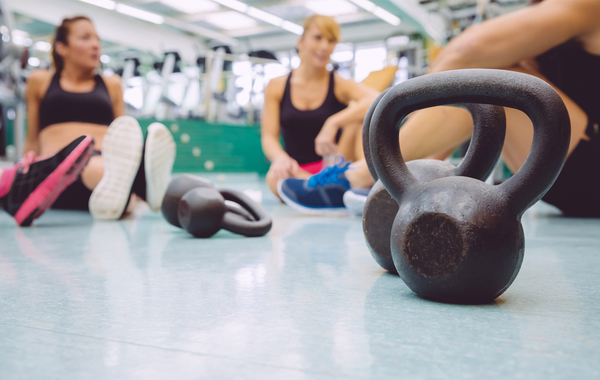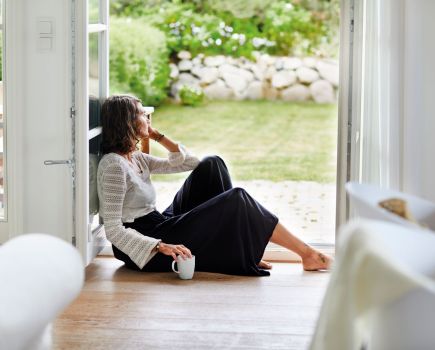When it comes to keeping your immune system strong, exercise can definitely help – but could too much be a bad thing?
Running, lifting, throwing, twisting; whatever your exercise of choice, no doubt you don your workout gear as often as you can – even when rain sheets down from a gloomy sky – because you hope it’s going to keep you healthy.
Along with eating well and good quality kip, exercise is a key component of a healthy body and strong immune system. Or is it?
It turns out the link between your immune system and the exercise you do could be something of a double-edged sword. While a sedentary lifestyle may hinder health, training too hard can have the same effect.
‘Exercise works on multiple levels to keep your immunity strong,’ says immunologist Dr Jenna Macciochi (drjennamacciochi.com).
‘It starts by giving your lymphatic system a good old boost and moving lymph fluid – packed with immune cells – around your body. Unlike blood vessels, your lymphatics don’t have the luxury of the heart to help them flow and instead rely on muscle movements.’
Exercise can help boost your immunity
Moving your immune cells around your body helps them perform important surveillance jobs as they seek out infections and potentially spot early development of cancerous cells to squash them before they progress.
‘Moving your muscles also produces special immune communication molecules called cytokines, which help rejuvenate your immune system, keeping it young.
This is especially important, as after your mid-twenties your thymus gland – where certain immune cells are made – starts to shrink, but moderate exercise helps to actually slow this shrinking process,’ says Dr Macciochi.
This means if you’re an active 70-year-old you could, in theory, be younger (in immune terms) than your sedentary 30-something counterparts!
‘Finally, regular, moderate exercise also helps to reduce inflammation, which can be damaging to your tissues if it hangs around too long.’
Find that ‘sweet spot’
‘Getting your workout regime just right can be a challenge’, says Dr Macciochi. ‘People who do little-to-no exercise and have a sedentary lifestyle are generally more likely to pick up infections than those who exercise regularly. However, it can be just as damaging to overdo it.’
People who hit the gym five to six times a week and then have to juggle a family or a job on top could be damaging their immune systems. While it’s true this system needs exercise to thrive, it also needs adequate rest, recuperation and recovery time.
We all need downtime
Overworking your body causes stress hormones, suchas cortisol and adrenalin, to rise, so it’s essential to get some much-needed downtime.
‘Everyone is different, and it’s important to know what’s right for you, but as a general rule, regular, moderate exercise will include three or four varied workout sessions per week, consisting of aerobic, anaerobic and resistance exercises,’ says Dr Macciochi.
Exercising when under the weather
Many people adopt a ‘keep going’ attitude when it comes to illness, but sometimes you need to take a step back and spot when your body is trying to tell you something.
‘When you’re sick, your immune response actually signals to your brain to change your behaviour and adopt what are known as “sickness behaviours”,’ says Dr Macciochi.
‘This is why you don’t feel like getting out of bed when you have flu. In today’s modern world we’re often focussed on “powering through”, but it’s very important to pay attention to what your body is telling you.
You need energy to help you recover
‘Immune responses are costly and draining, so working out when you’re ill can mean less energy available to recover. That being said, it does depend on what sort of illness you have. As a general rule of thumb, stick to the following guidelines…’
If you have a mild head cold, exercise should be fine. In fact some movement, such as a gentle walk, might even help and will allow your body to squeeze out any remaining bugs and dead cells after fighting infection.
If you have a fever, you should always rest up and recover.
If you decide you are going to work out, even if you’re not on top form, always moderate it a bit. For example, opt for a gentle walk rather than a fast run. Do yoga rather than aerobics. Choose shorter classes so you don’t overload your system.
It’s also important to start slowly when you get back to your workout schedule after being unwell.
Try these immune-boosters
‘General movement can be just as beneficial as a workout,’ says Dr Macciochi. ‘I always tell people to be a regular, moderate mover. Keep it moving rather than always “pushing it” to perform.’ Check out Dr Macciochi’s immune-boosting exercises below…
 Walking
Walking
This is the perfect workout; it keeps your body moving, while not putting it under too much strain. Upping your pace and adding some hills will really get your lymphatics pumping.
 Strength training
Strength training
Using weights is very important. Good muscle mass helps to keep your immunity strong. You naturally lose muscle as you age – particularly if you don’t use it. It’s not about lifting heavy weights and building huge muscles, but simply retaining and strengthening what you already have.
 Swimming
Swimming
This aerobic exercise also adds that element of resistance training. You push against the water, while taking the pressure off your joints. It’s a little easier on your body than a vigorous run around the park and a perfect immune-booster.








